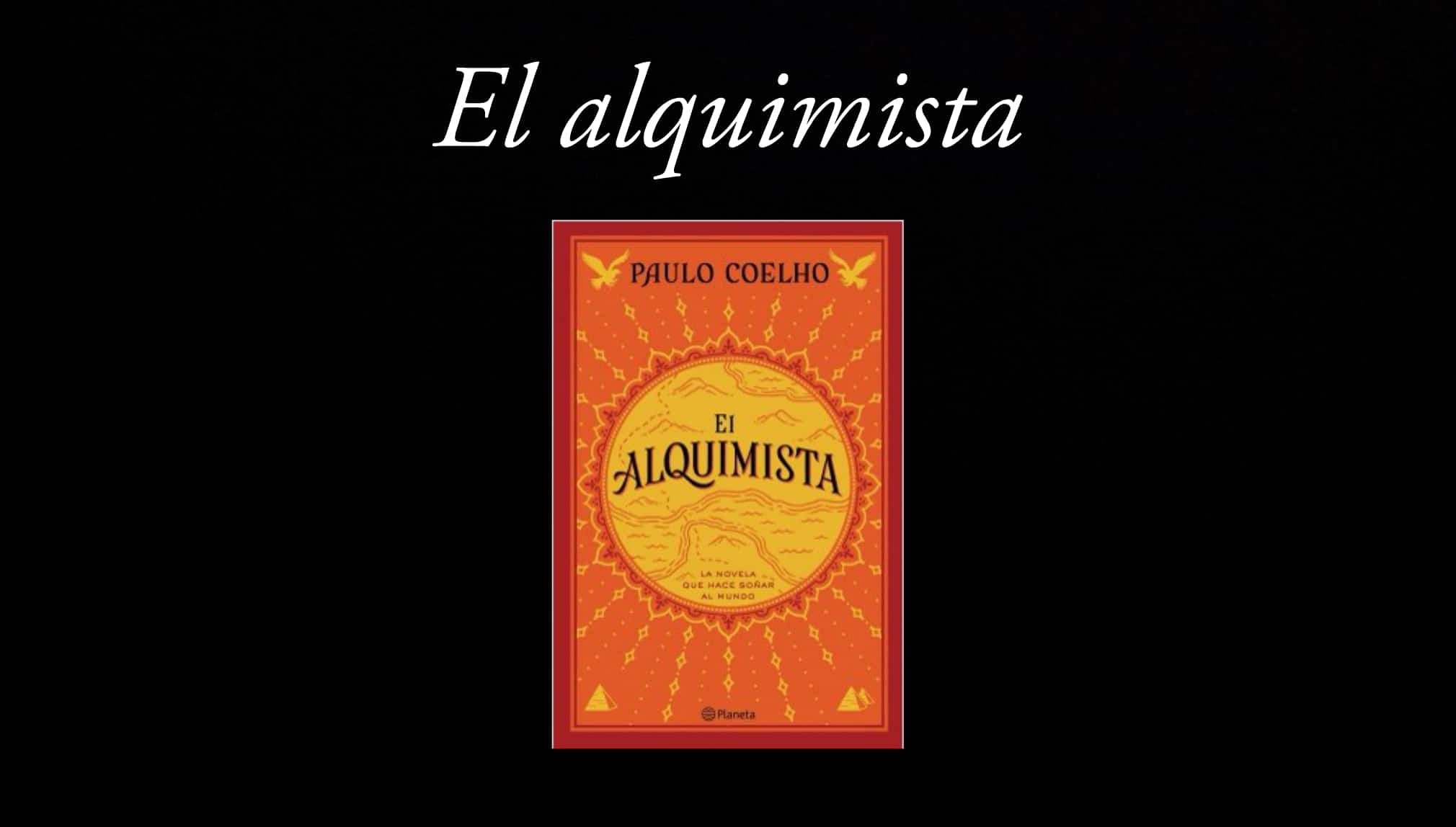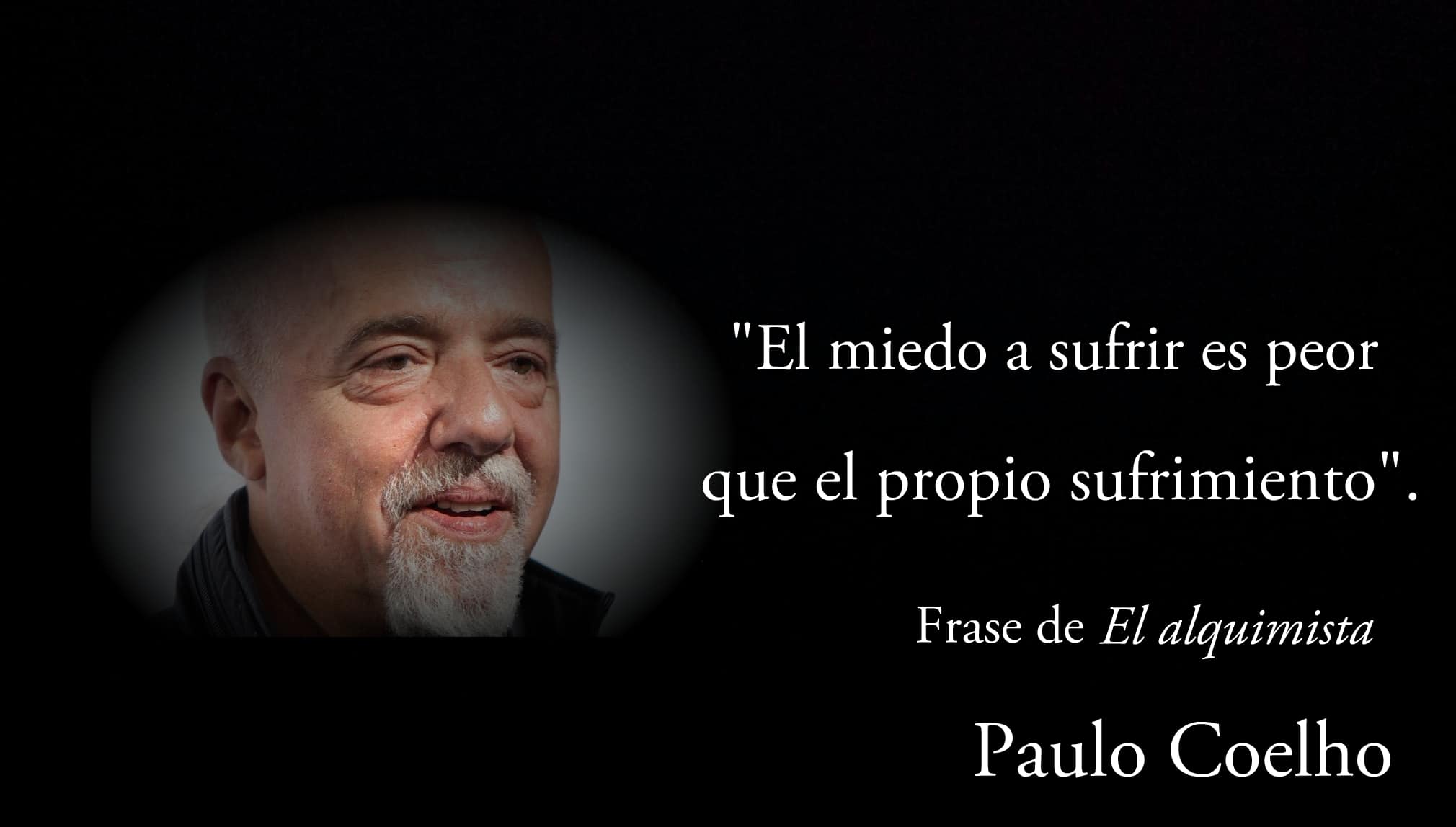
The Alchemist.
The Alchemist it was the second book published by the Brazilian writer Paulo Coelho. Although its first edition in 1988 did not have considerable commercial success, today it is quite a best sellers world. The impact of this title translated into 56 languages is immeasurable. Media like Journal of Letters of Portugal consider The Alchemist as the best-selling Portuguese-speaking book of all time.
The text recounts the journey of Santiago, a young shepherd in search of treasure in the Egyptian pyramids. In his journey through the desert, he learns elementary concepts for his existence due to successive encounters with various enigmatic characters. Among them, the teachings of the alchemist are key, who — after revealing all his power — will forever transform the life of the protagonist.
About the author, Paulo Coelho
Birth and family
The son of a wealthy middle-class family, Paulo Coelho was born in Brazil in 1947. His father, Pedro, was an engineer; his mother, Lygia, a housewife. From the age of seven he received Jesuit training at the Colegio San Ignacio in Rio de Janeiro. However, the compulsory religious practice produces in the young person an effect of rejection towards the masses. But not everything was negative, because in the corridors of that institution his literary vocation emerged.
Period of psychiatric confinement
Paulo's rebellious character was evident in his adolescence, when he opposed his parents' intention to make him an engineer. His father took this behavior as a symptom of illness and decided to admit his son (on two occasions) to a mental health center. Later, the young Coelho began to associate with a theater group and carry out journalistic work.
After a third experience in a psychiatric hospital - and on the advice of a family doctor - Paulo decides to study law to get his life back on track. Many of the dark experiences and depressive feelings of that time were captured by the author in Veronika Decides to Die (1998)
Hippie movement and music in the midst of the dictatorship
Coelho did not complete his university training, instead, he immersed himself fully in the hippie scene of the sixties. Those were times of experimentation with psychotropic substances and of musical creation with Raúl Seixas. Until 1976, Paulo composed more than sixty songs on different albums that exceeded 600.000 copies sold in total.
In 1973, Coelho and Seixas joined the liberal-thinking anti-capitalist movement, Sociedad Alternativa, who were also practitioners of black magic. These rituals would serve as the basis for the plot of The Valkyries (1992). During this period, the young Paulo was imprisoned for being the “thinking head” of the libertarian comic kring ha. The dictatorial military regime of the time considered it a serious threat.
Torture
Just two days after being released, Coelho was kidnapped in the middle of the street and taken to a military detention center. There, he was tortured for several days. His captors only let him go because the writer pretended to be crazy. His three previous admissions to psychiatric hospitals served as proof. According to the 2004 biography (Ruiza, M., Fernández, T. and Tamaro, E.), after being released, a 26-year-old Paulo "had had enough" and decided to "have a normal life."
Marriages and first publications
At the record company Polygram - where he worked for a year - he met his first wife (He was married to her for a little over two years). Starting in 1979, he began to travel to different parts of Europe with an old friend, Christina Oiticica. With whom he married later and remains in coexistence to this day.

Paulo Coelho.
Thanks to an encounter with a character in Amsterdam (whose identity Coelho has never wanted to reveal), the Brazilian writer begins to reconcile with Catholicism. As part of this spiritual rebirth, Paulo walked the Camino de Santiago with Christina. The experience inspired him to release his first book in 1987, The pilgrim of Compostela (Diary of a magician), with modest sales numbers.
The Alchemist (1988)
According to the author himself, it took him only fifteen days to write The Alchemist. Although the first edition only sold 900 copies, the insistence of the Brazilian writer paid off ... Between 1990 and 1998 the work added more than 50 reissues, exceeding the ten million copies that have come. The literary agency Sant Jordi explains in Coelho's biography how The Alchemist represented a turning point in his career:
“In May 1993, HarperCollins publishes an ambitious edition of 50.000 copies of The Alchemist, which represents the largest initial edition of a Brazilian book in the United States. Publisher CEO John Loudon introduces the book saying: It was like waking up at dawn and watching the sun rise while the rest of the world was still asleep. Wait for everyone else to wake up and see this too".
Countries where The Alchemist topped the bestseller list and top honors
- Australia, September 1989.
- Brazil, 1990. It becomes the best-selling book in the entire history of the Rio de Janeiro nation.
- France, launched during April 1994, reached the top in December of that year (it stayed five years in a row). In March 1998 the magazine Read named him the best-selling author in the whole world.
- Spain, May 1995. Editors Guild Award from Editorial Planeta (2001).
- Portugal, 1995. In 2002, Editorial Pergamino declared him the best-selling author in the Portuguese language. Shortly after, Journal of Letters grants him the same distinction.
- Italy, 1995. Super Grinzane Cavour and Flaiano International Awards.
- Germany, 1996. In 2002, it broke the absolute record of permanence as number 1 of the hardcover lists of Der Spiegel (306 weeks).
- Israel, November 1999, XNUMX.
- Iran, 2000 (unofficially because the Islamic nation never signed the International Copyright Agreement). That same year, he became the first non-Muslim author to officially visit that country since 1979.
Sequence of characters from The Alchemist
The main character is Santiago, a lively-minded Andalusian shepherd in search of his own particular legend. Then an intimidating-looking gypsy appears, but she turns out to be key to interpreting the protagonist's vision. Next, Melquisedec (King of Salem), the merchant, Fatima (with whom Santiago falls in love) and the powerful alchemist with his trained hunting falcon appear.
Analysis of The Alchemist
Argument
Santiago, a sheep herder very comfortable with his nomadic lifestyle, sets out on a journey into the unknown to find a treasure. Which was only revealed to him when he deciphered the mysteries capable of elevating his body, mind and soul. To discover these mystical signs, the protagonist had to let go of all ego, cultivate his spirit and leave behind any hint of vanity. Only then could he listen to the universe.
Concepts
Wisdom lies in simplicity
When Santiago asks the gypsy to interpret his recurring dream about a boy showing him a treasure in the Egyptian pyramids, he is disappointed with the explanation. For this reason, the gypsy explains: "the simplest things in life are the most extraordinary and only the wise can see them."
The inevitable power of faith
The protagonist proposes in vain to forget his vision (and the call of his destiny). But an old man in Arab clothing - Melchizedek - reminds him of the infallibility of fate. The old man tells him: "at some point in our lives, we lose control of what is happening to us and our lives are controlled by faith."
The universe and its soul
Santiago is torn between his usual familiar life and an adventure full of uncertainties. Melchizedek urges him to continue his search; If things don't work out, you can go back to being a pastor. The old man turns out to be the King of Salem. Once he reveals his true identity, he hands Santiago a small black and white rock with the intention of helping him with the omens. Although he insists on the importance of "making your own decisions"
In every thought, a decision
Once in Africa, Santiago is tricked by a merchant, who steals his money. Then, the protagonist must choose with which attitude he must face the circumstance. That is, if you see yourself as a victim or a cheater. However, he decides on a better option: to think that he is an adventurer in search of treasure.
A dream is immeasurable
After a year working as a window cleaner for a mercenary, Santiago raises enough money to return to his old life as a shepherd. But the employer knows what decision the young man will make, because “it is written” (by the hand of Allah). Santiago will not buy sheep, he will continue to search for his dream because the signs of the universe are clear.
The teaching of the desert
Santiago falls in love with Fatima, a young woman from a caravan that was crossing the Sahara. The feeling is reciprocal, but she urges him to persist in the search for his dream and promises to wait for him in an oasis. Amid the sadness over the eventual separation, Santiago receives a vision of some warriors attacking the oasis. Thanks to that premonition, the Cacique and his tribe manage to save themselves.
Love never interrupts the path to personal legend

Phrase by Paulo Coelho.
Santiago understands this concept after meeting a character full of mystical powers. It is about an alchemist who was waiting for him and explains the three types of alchemist. The first tries to grow and evolve together with its environment to reach the so-called philosopher's stone.
The second type of alchemist finds his gift almost by chance, by stumbling, when their souls are ready to take on that role. The third type of alchemist only shows an obsession with gold, consequently, he will never be able to find "the secret". The teacher always refers to simple things, because "everything you need to know you have learned on your way."
Be like the storm
When a military campaign kidnaps Santiago and the alchemist, the latter claims to be only a guide and predicts his ward's transformation into a storm within three days. In the first instance, Santiago doubts himself; later he manages to speak with the elements and with the universe, begging for a meeting with his beloved. Finally, the conjunction of the sand, the wind, the sky and the universe turn Santiago into a storm.
The treasure
The alchemist teaches Santiago to turn lead into gold. When the young man arrives at the Egyptian pyramids, he sees a scarab burying himself in it
to sand and interprets it as a sign from the universe. He begins to dig for treasure until he is struck by a group of refugee men of war. They take all the gold from Santiago and laugh at recounting his dream.
But the refugee leader tells him a dream of his own. In the leader's vision there was a treasure hidden under the roots of a sycamore tree next to the ruins, a sacristy frequented by sheepherders. For this reason, the former shepherd returns to the place where it all began (two years ago) in Spain. There he gets a chest with gold coins. At the end, the wind brings him a familiar perfume… Santiago is already heading towards his beloved.